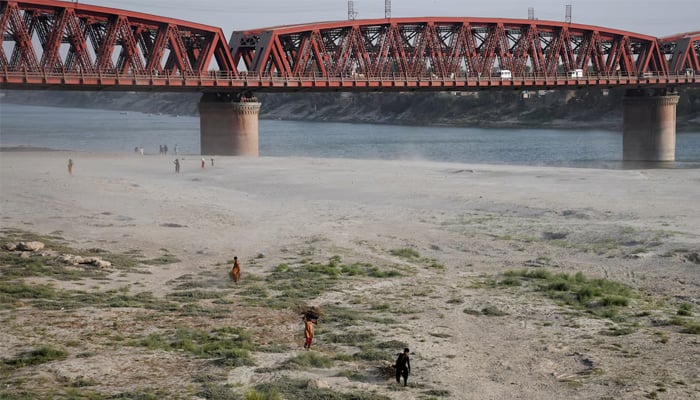Pakistan has emphasised its commitment to the Indus Waters Treaty arbitration, saying that it will fully engage in the Neutral Expert proceedings in good faith, despite India’s withdrawal from the process.
According to a statement issued by the Ministry of Foreign Affairs (MoFA) on Wednesday, the Neutral Expert proceedings were initiated at India’s request, with the next phase scheduled to take place in Vienna from November 17 to 21, 2025. The ministry noted that the Neutral Expert has ruled that India’s non-participation could not operate as a bar to the proceedings going forward.
The Foreign Office also said that Pakistan had taken note of the Procedural Order issued by the Court of Arbitration in parallel with its latest decision. The order affirms that the Court will continue to conduct the arbitration in a phased manner while taking into account the Neutral Expert proceedings under Article IX and Annexure F of the IWT.
In its statement, the MoFA said Pakistan had also noted the decision of the Permanent Court of Arbitration (PCA) rendered on November 8, 2025, which offered helpful clarifications on aspects of the court’s earlier award on Issues of General Interpretation of the Indus Waters Treaty, published on 8 August 2025.
The PCA explained that the Court’s clarifications cover the scope of Paragraph 8(a) of Annexure D, confirming that the prohibition extends to all design components capable of artificially raising water levels beyond the Full Pondage Level. It also affirmed that these design criteria are mandatory at the planning stage of such projects and cannot be replaced by operational restraints.
In a Procedural Order issued alongside the clarification, the Court confirmed that it would continue to handle proceedings in stages, bearing in mind developments before the Neutral Expert. The parties were invited to submit written observations on the status of the Neutral Expert process and views on possible further phases of arbitration.
The court’s latest decision follows its August 2025 award, which interpreted key provisions of the Treaty, including Article III and Annexure D, governing India’s hydroelectric projects on the western rivers.
In a statement released on August 11, the Foreign Office said the August 8 award reaffirmed that India must “let flow” the waters of these rivers for Pakistan’s unrestricted use, and that such awards are final and binding on both parties.
Recognising Pakistan’s position as the downstream riparian, the earlier award observed that the water treaty’s object and purpose are to delimit the two states’ respective rights and obligations while ensuring mutual cooperation and effective dispute resolution.
Following the killing of 26 people in Indian Illegally Occupied Jammu and Kashmir (IIOK) in April this year, India unilaterally held the IWT with Pakistan in abeyance.
New Delhi accused Islamabad of orchestrating the deadly militant attack, an allegation that Pakistan denies.
The use of the water is governed by the IWT, which was mediated by the World Bank and signed by the neighbours in September 1960. There is no provision in the treaty for either country to unilaterally suspend or terminate the pact, which has clear dispute resolution systems.
Pakistan has consistently maintained that it remains committed to the full implementation of the Indus Waters Treaty and expects India to resume the Treaty’s normal functioning and comply with the Court’s rulings.

